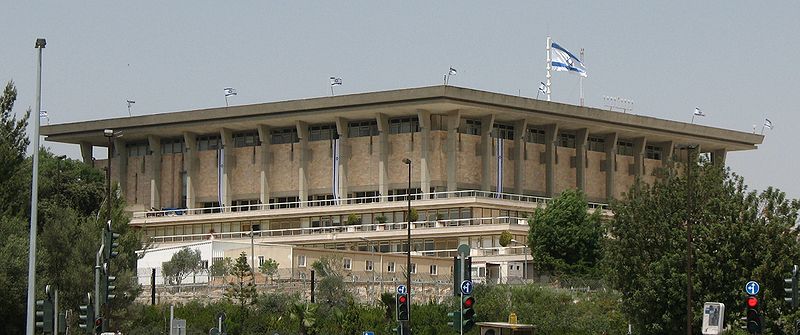Israeli Elections: Many Winners are Losers
By Manfred Gerstenfeld
 What months of campaigning lacked in excitement was partly compensated for on election night. All polls had estimated a majority of at least several seats for the Center-Right and ultra-religious parties over the Center-Left and Arab parties.
What months of campaigning lacked in excitement was partly compensated for on election night. All polls had estimated a majority of at least several seats for the Center-Right and ultra-religious parties over the Center-Left and Arab parties.
The results however, with votes from soldiers not yet counted, show a dead heat. It does not mean much because the election outcome points toward a government with a nucleus of the 50 MKs from the joint Likud-Israel is our Home list and the centrist There is a Future party led by newcomer to politics, Yair Lapid. To reach a majority government some other parties must be added, most likely the national-religious Jewish Home party which obtained 11 seats and the small Kadima party with 2 seats. Such a government will probably be led by the current Prime Minister, Benjamin Netanyahu.
The immediate challenge for the new government will be to cut the large budget deficit. It was 39 billion shekels – 4.2% of the GDP – in 2012. Difficult decisions will have to be made. The defense budget seems a likely candidate for a major budget cut.
The election results are confusing because few of those who call themselves winners really are. Lapid is the only one who can truly claim victory. The 19 seats his party received are far beyond what the huge number of polls during the campaign had forecast. There is a Future also left the next largest party, Labor with 15 seats well behind. Lapid aims to present himself as a voice for the middle class, opposing tax increases and supporting a more equal sharing of the military burden.
One possible conclusion to be drawn is that the Israeli public prefers new faces. This may be due to their dislike of the existing parties, their leaders and parliamentarians. The other relatively succesfull newcomer is Naftali Bennet, the young multi-millionaire who led the Jewish Home to 11 seats – from the 5 its two factions had in the previous Knesset. Yet Bennet who had become a central figure in the election campaign, can not be totally happy. All recent polls had given the Jewish Home more seats than it received.
The hardly contested, albeit very problematic winner of the elections was Netanyahu. His list is far bigger than that of the next in line, There is a Future. Yet the Likud had 27 seats in the previous Knesset and Israel is our Home led by former Foreign Minister Avigdor Lieberman had 15. Instead of going up to 45 seats as their American guru Arthur Finkelstein had forecast, they lost 11 of their 42.
The situation may get even worse if the two parties continue on as separate entities. Then Netanyahu will lead a Likud with only one seat more than Israel Has a Future. Likud ministers will be a minority in the next government. There will also be less ministries to be divided among them than the party currently holds. And as long as the trial against Lieberman has not taken place, Netanyahu doesn’t know whether he must reserve a seat at the government table for him or not. This situation is a far cry from the joint list’s campaign slogan that called for voters to make him a strong Prime Minister.
Shelly Yachimovich could also nominally claim victory with Labor’s 15 seats. The party under its then-leader Ehud Barak gained 13 seats in 2009. Barak and four others broke away in 2011, leaving Labor with 8 seats in the outgoing Knesset. Yet Yachimovich had presented herself as the leader of the opposition during the campaign. She committed not to sit in the government other than as Prime Minister and even if she eats those words, her role in any government can only be limited. Furthermore the number of seats Labor obtained was well below what the polls had predicted.
The ultra-Orthodox parties – the Sfardi Shas and the Ashkenazi United Torah Judaism – maintained their strength with 11 and 6 seats respectively. Yet, they may be big losers in this election if they are left outside of the government. Their main aim has always been to obtain financial handouts for their clients, many of whom lack secular education and have big families. Parties in a government without them will gladly agree on making the ultra-Orthodox sector share more of the military and civil service burden. They could present this as one of their major achievements in the future. That is the more important as the necessary budget cuts and tax increases will not be popular.
There were probably more polls published this time around than during any previous elections. Yet their limitations were also never exposed as much. The large number of undecided voters – some even until in the polling booth – greatly reduced the polls’ value.
With all of the confusion and uncertainty, few people would be greatly surprised if Israel’s next parliamentary elections were to take place well before 2017 as scheduled.

